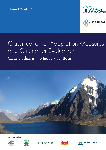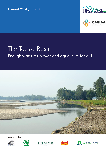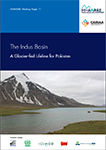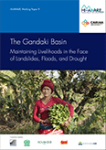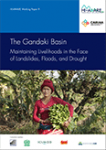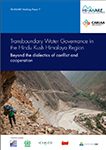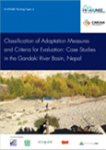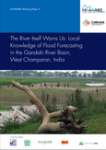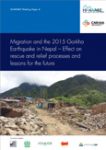Classification of Adaptation Measures in the Indus River Basin
Working Paper - 13, 2018
This working paper highlights the cases of climate change adaptation taking place in the Hunza, Soan basin, and Chaj Doab region of the Indus basin in Pakistan.
The Teesta Basin-Enough water for power and agriculture for all?
Working Paper - 12, 2018
This situational analysis report summarizes the socio-economic condition of people and ecosystems of the Teesta basin
The Indus Basin: A glacier-fed lifeline for Pakistan
Working Paper - 11, 2017
The Indus River is the 8th longest river in the world. It originates in the Tibetan Plateau and flows across the entire length of Pakistan.
Critical Climate-Stress Moments and their Assessment in the Hindu Kush Himalaya
Working Paper - 10, 2017
This document discusses and provides a rationale behind the concept of ‘critical climate-stress moments’ in the context of weather variability and climate change (hereafter: critical moments).
The Gandaki Basin: Maintaining Livelihoods in the Face of Landslides, Floods, and Drought
Working Paper - 9, 2017
This situation analysis of the Gandaki Basin focuses on the opportunities and challenges for livelihood strategies and adaptive capacity of people in the Gandaki basin by analysing climate trends, literature review and detailing of field visits within the study site.
The Upper Ganga Basin: Will Drying Springs and Rising Floods Affect Agriculture?
Working Paper - 8, 2017
This situation analysis of the Gandaki Basin focuses on the opportunities and challenges for livelihood strategies and adaptive capacity of people in the Gandaki basin by analysing climate trends, literature review and detailing of field visits within the study site.
Transboundary Water Governance in the Hindu Kush Himalaya Region
Working Paper - 7, 2017
The querulous nature of transboundary water governance is as old as the concept and practice of transboundary water management. This narrative review attempts to provide a justification for a pragmatic approach to transboundary water governance that goes beyond the dialectics of conflict and cooperation, particularly for countries in the HKH
Classification of Adaptation Measures and Criteria for Evaluation: Case Studies in the Gandaki River Basin, Nepal
Working Paper - 6, 2017
The study shows that communities within the Gandaki river basin are already experiencing climate change impacts, with a visible effect on their livelihoods. Local practices and on-ground planned and autonomous adaptation innovations are identified and analysed.
The River Itself Warns Us
Working Paper - 5, 2017
In the flood prone context of the Gandaki river basin, this paper documents the complex interactions between local knowledge based forecasting of floods vs. official early warning systems.
Migration and the 2015 Gorkha Earthquake in Nepal – Effect on rescue and relief processes and lessons for the future
Working Paper - 4, 2016
The effects of the 2015 Gorkha earthquake had both positive and negative impacts on migration patterns in earthquake affected districts. Post-earthquake the process of rebuilding was quite challenging with varied experiences for migrant and non-migrant households. These differences are explored further in this paper.

